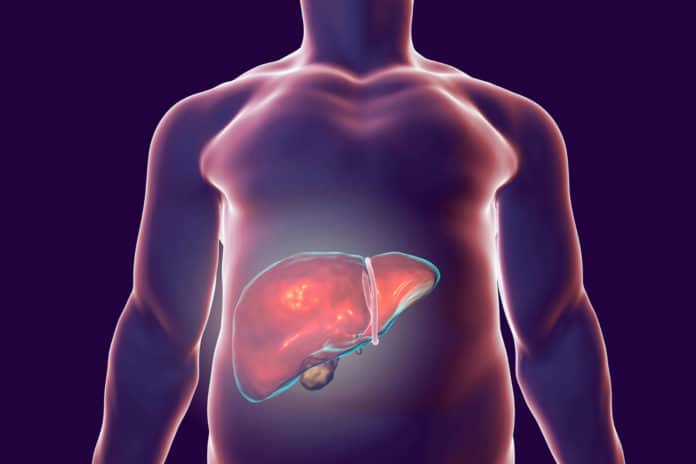When fat builds up in your liver, the condition is known as Nonalcoholic fatty liver disease (NAFLD). The condition causes inflammation and liver damage.
Yale scientists discovered what causes NAFLD. They found that mutations in gene Dyrk1b are associated with metabolic syndrome and nonalcoholic fatty liver disease in humans.
While numerous medications are presently under development to treat fatty liver disease, this is one of the first studies to explore the job of this gene in the disease pathogenesis of NAFLD and insulin resistance.
The study helped scientists discover a therapeutic target for treating nonalcoholic fatty liver disease and liver insulin resistance in type 2 diabetes.
Arya Mani, MD, a professor of medicine and genetics, said, “Here we show that the genetic mutation in humans may cause fatty liver disease. The levels of the encoded protein are elevated in most patients with fatty liver disease. When we suppress it in mice on a high-fat diet, we protect mice against diet-induced NAFLD and NASH. It can be a potential therapy for fatty liver disease.”
Increased gene expression indicated an increased risk of hyperlipidemia, fatty liver disease, liver inflammation, and fibrosis. They likewise observed that mTORC2 intervenes in the impact of Dyrk1b. Hence, scientists think it could be a potential therapeutic target for nonalcoholic fatty liver disease patients.
The activation of mTORC2 regulates cellular proliferation and metabolism. At the molecular level, it caused insulin resistance, while targeting Dyrk1b led to decreased insulin resistance.
Scientists noted, “These findings provide new insights into the mechanisms that underlie Dyrk1b-induced hepatic lipogenesis and hepatic insulin resistance and identify Dyrk1b as a therapeutic target for NASH and insulin resistance in the liver.”
Journal Reference
- Neha Bhat, Anand Narayanan et al. Dyrk1b promotes hepatic lipogenesis by bypassing canonical insulin signaling and directly activating mTORC2 in mice. Journal of Clinical Investigation, 2021; DOI: 10.1172/JCI153724
